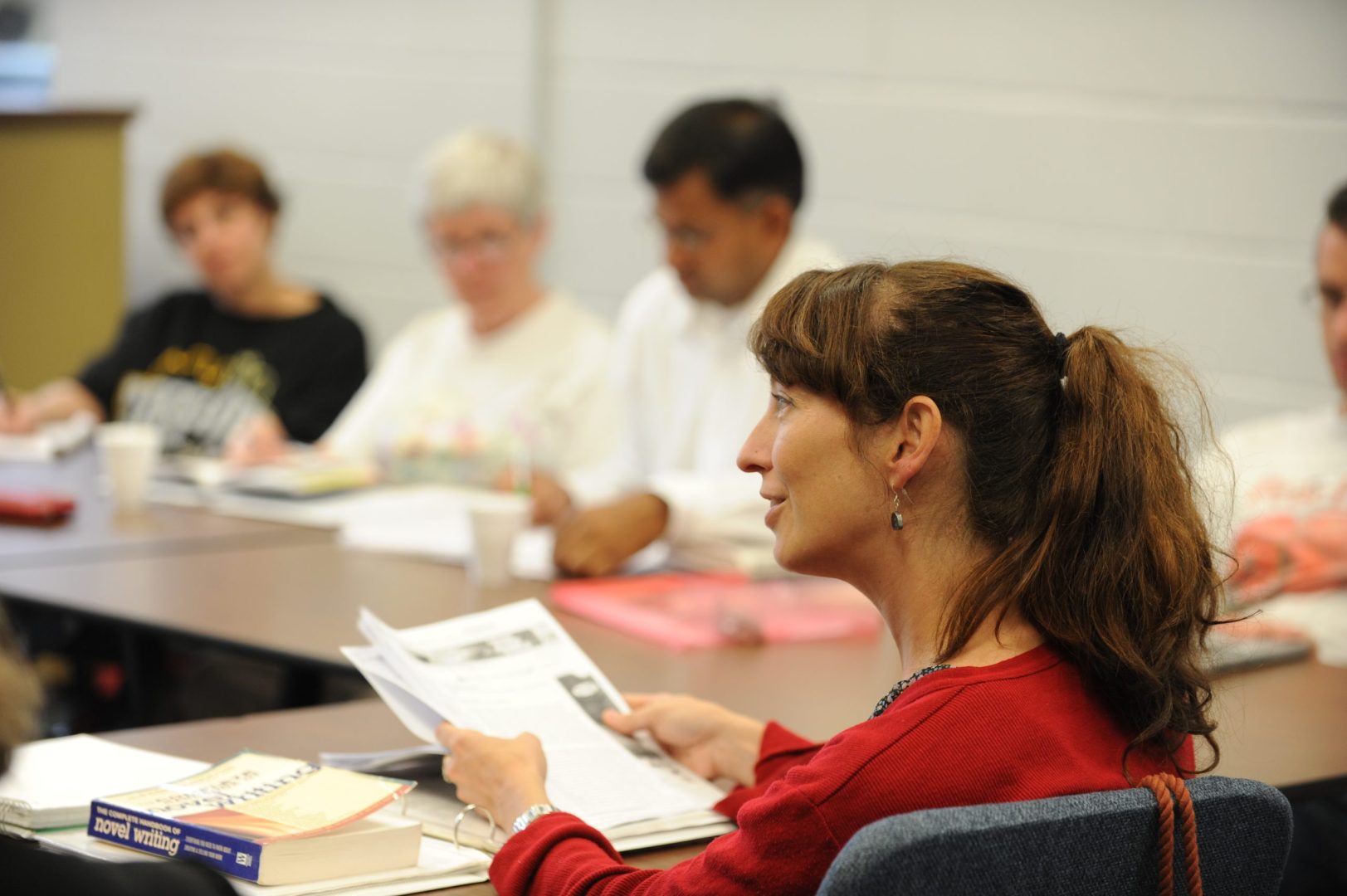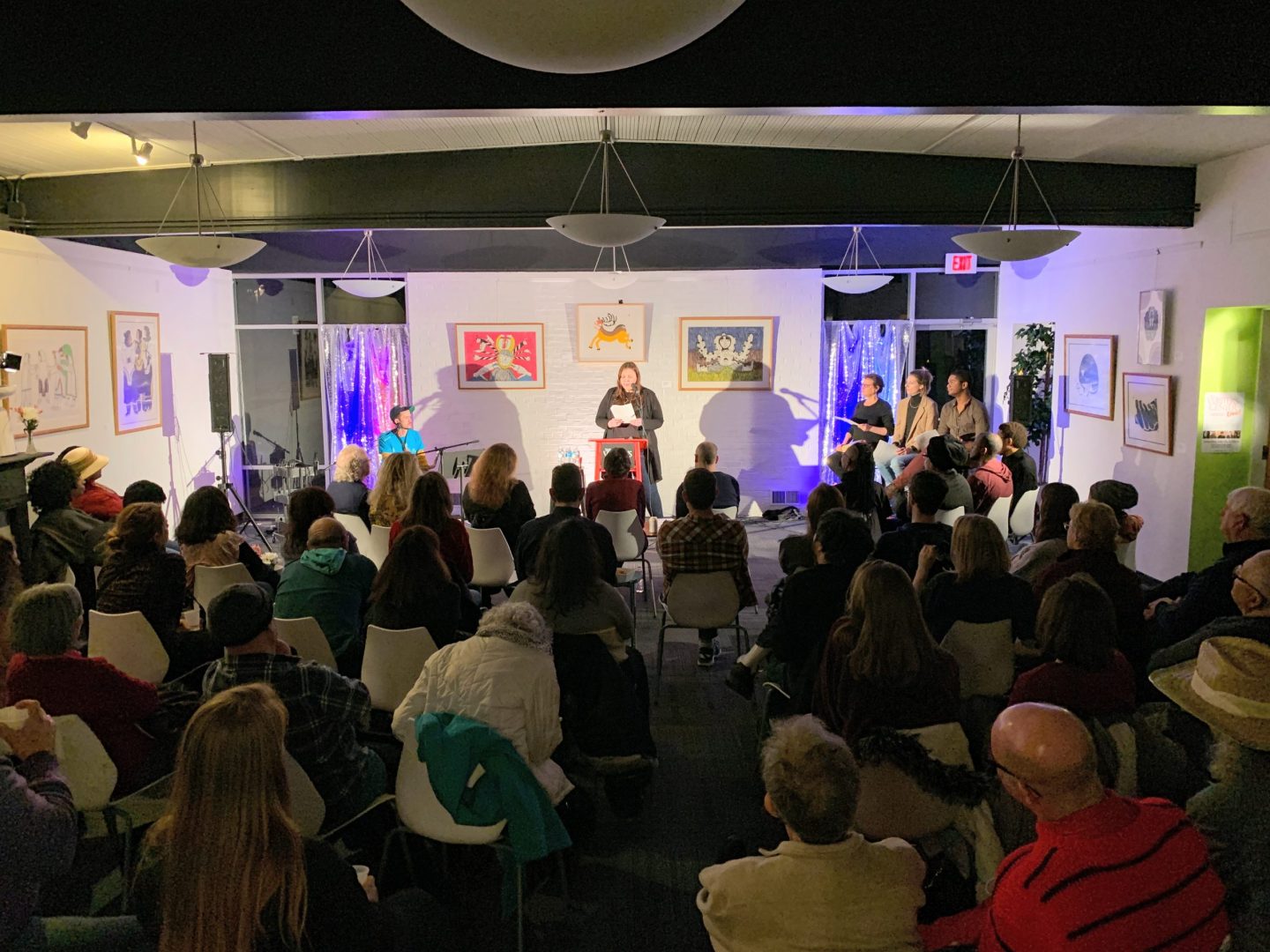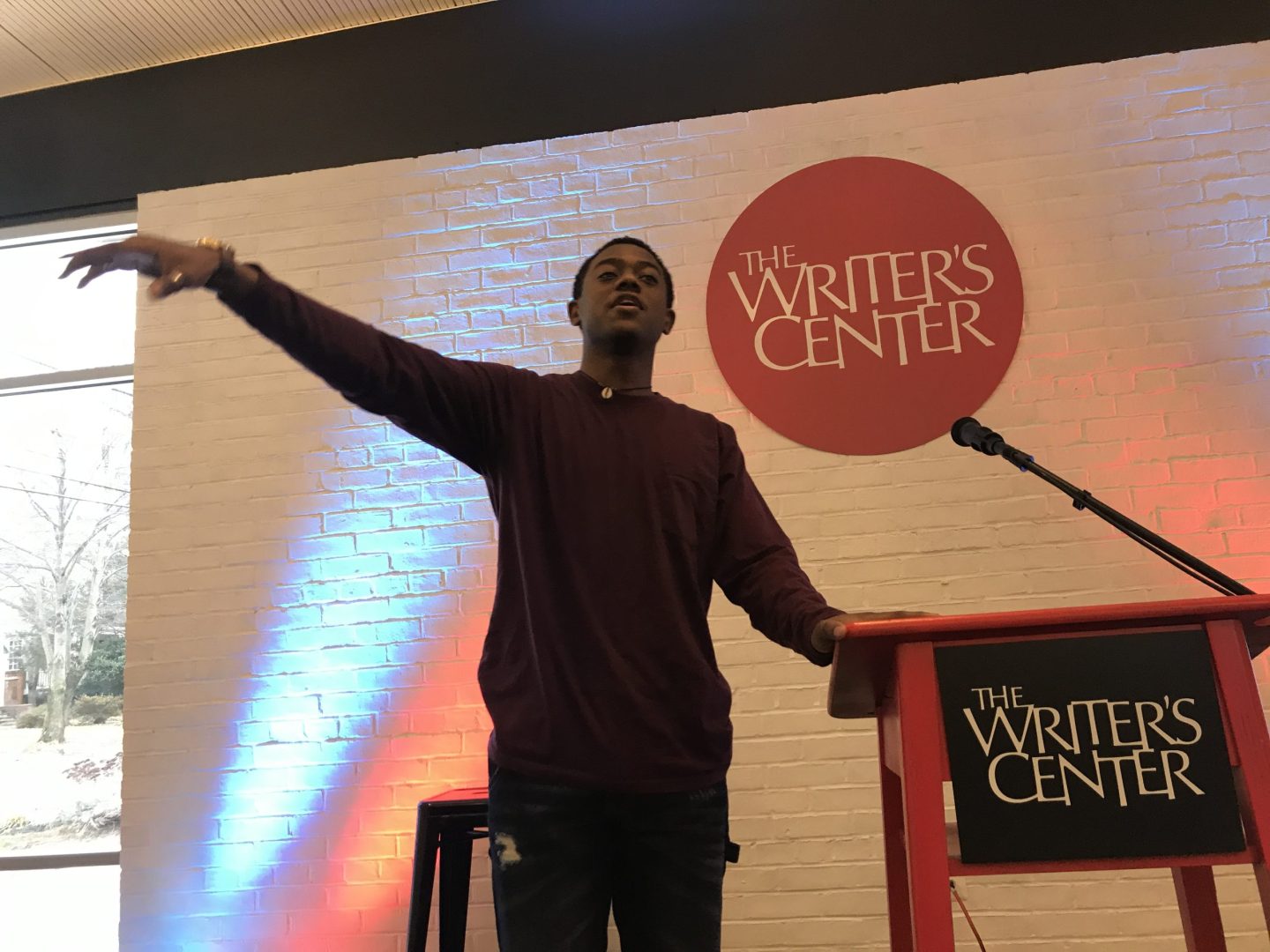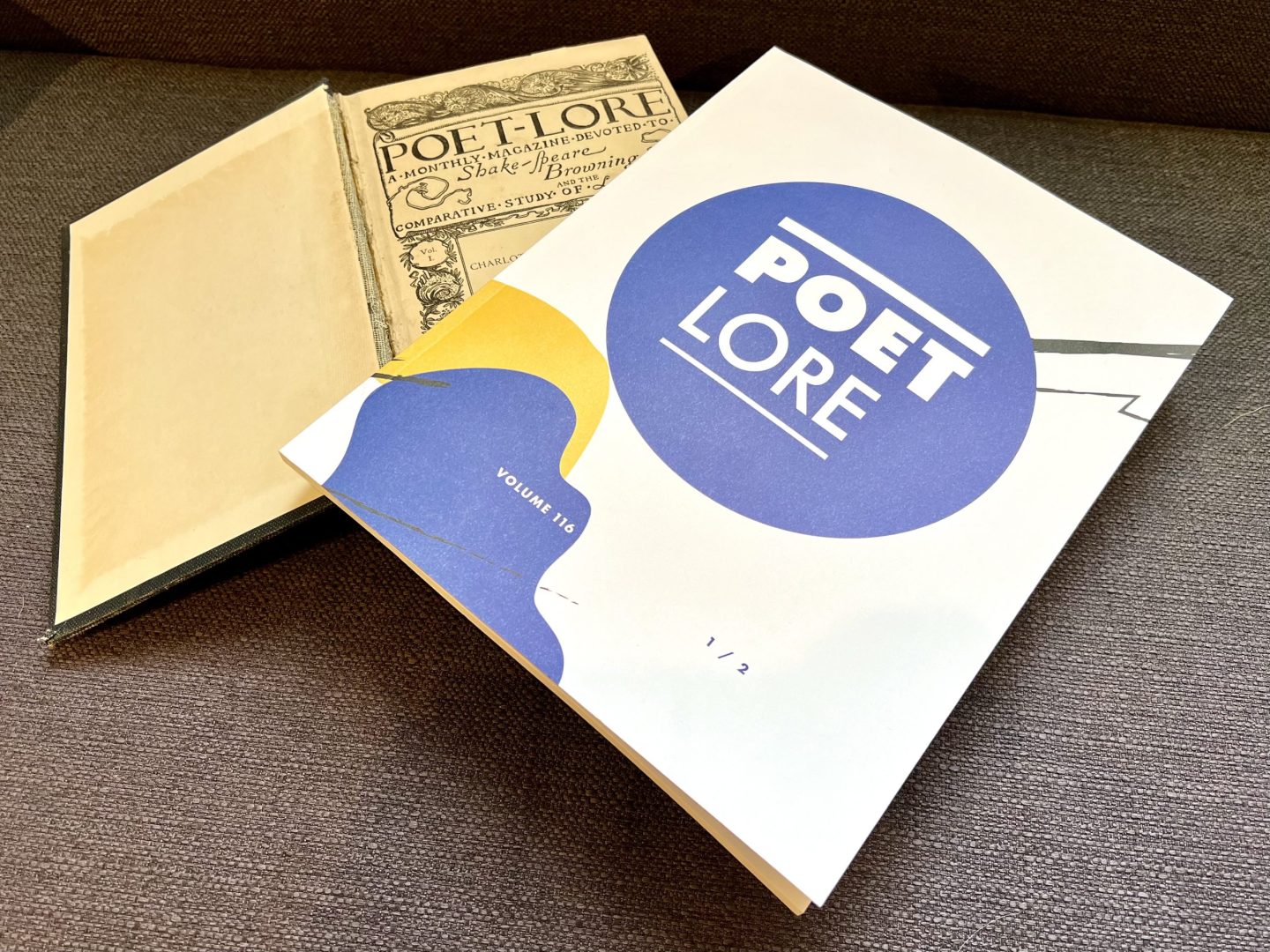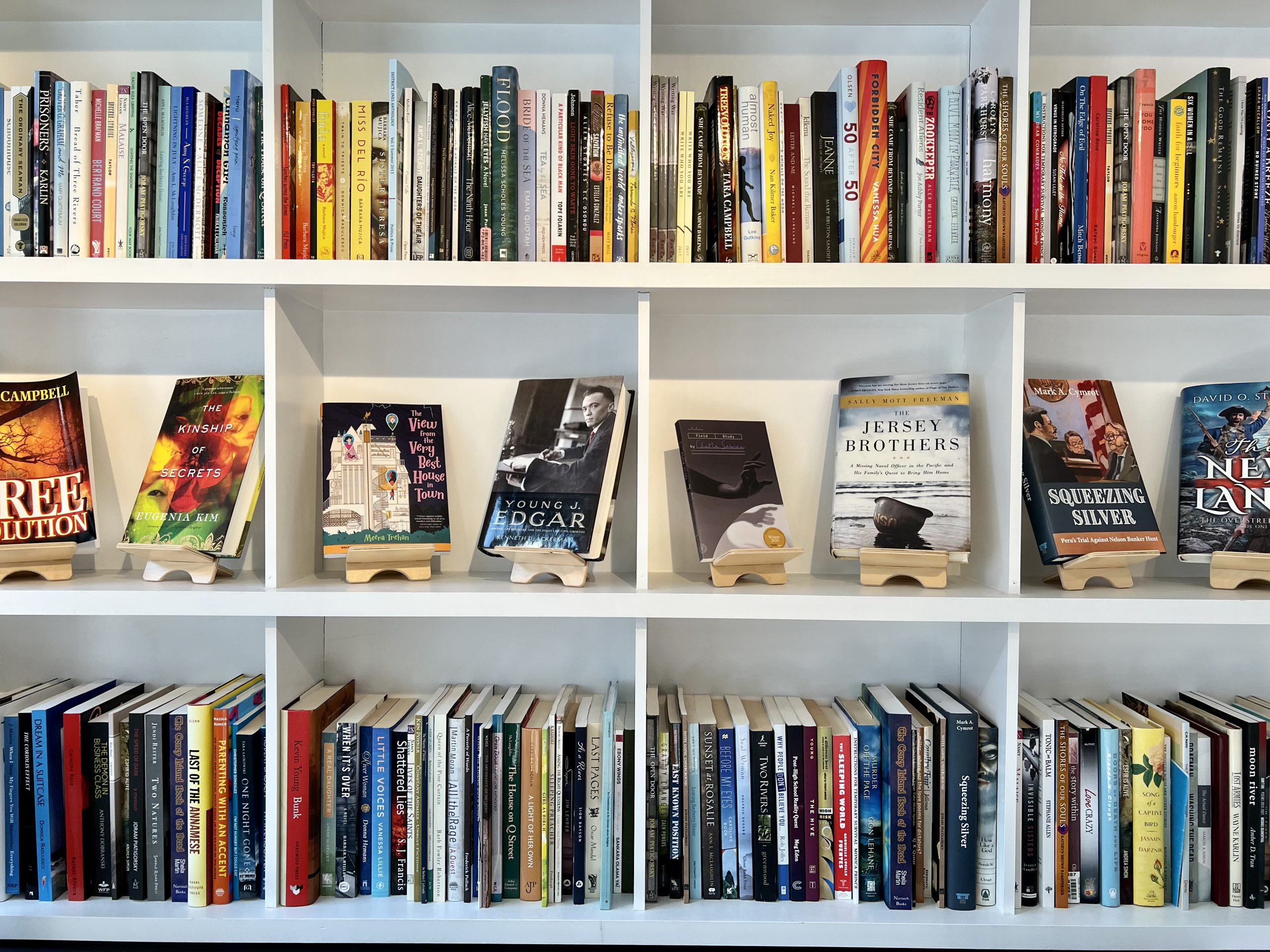Find grant and award opportunities
The Writer’s Center has collected several opportunities and organized them by month so that writers can plan their time effectively.
Please note that this page is a reference for writers. We do not partner with the following organizations. Also, these opportunities are subject to change, so be sure to visit the websites for the latest information.
January
Barbara Deming Memorial Fund
What it is: The Barbara Deming Memorial Fund was founded in 1975 by writer and civil rights activist Barbara. Deming. They award small ($500-$1,500) grants to feminist women in the arts who live in the United States and Canada.
Who’s it for: Women writers (cis and transgender) who identify as feminist.
The Writer’s Center says: This is a long-running, established granting agency that has lifted up poets and writers like Mira Bartok, Traci Brimhall, and Cheryl Strayed, among others.
Button Poetry Chapbook Contest
What it is: Since 2012, Button has run an annual poetry chapbook contest. The winner receives publication, 50 free author copies, and a $500 honorarium.
Who’s it for: Anyone who is 18 years old or older. The manuscript can be a collaborative entry with more than one author.
The Writer’s Center says: Their FAQs section about the contest is very helpfully thorough!
92Y Unterberg Poetry Center Discovery Poetry Contest
What it is: 92Y offers an annual prize for up to 10 pages of original poetry. Four winners will receive a reading at 92Y, publication in The Paris Review Daily, a two-night residency at the ACE Hotel, and $500 each.
Who’s it for: This contest is open to poets who have not yet published a full-length poetry collection.
The Writer’s Center says: This 60-year-old award is a big deal. It has launched the careers of major poets like John Ashbery, Lucille Clifton, Mark Strand, Larry Levis, Mary Jo Bang, and Solmaz Sharif, among others.
Virginia Commonwealth University – Levis Reading Prize
What it is: The Levis Reading Prize is presented annually by Virginia Commonwealth University for a best first or second book of poetry published in the previous calendar year. The winner receives an honorarium and are invited, expenses paid, to Richmond to present a public reading in the following fall.
Who’s it for: Anyone with a traditionally published first or second full-length poetry collection that has been published the previous calendar year. Entries from vanity presses or self-published works are not eligible.
The Writer’s Center says: This is a fantastic opportunity for a post-publication award.
February
Sustainable Arts Foundation grants
What it is: The Sustainable Arts Foundation offers a $5,000 award for artists and writers with families.
Who’s it for: The applicant must have at least one child under the age of 18. Parents of older children with a disability may also be eligible.
The Writer’s Center says: This is a rare opportunity for parents who are writers to get support for their creative work.
March
Laura Boss Narrative Poetry Award
What it is: The winner of the Laura Boss Narrative Poetry Book Award wins publication by New York Quarterly Books, 25 author copies, a $5,000 prize and a reading to coincide with their book’s publication.
Who’s it for: Anyone writing in the narrative poetry form.
The Writer’s Center says: The procedure for this book prize is a little bit unconventional—it involves two rounds, one with a sampling of poems from the manuscript, and the second with semifinalists submitting their whole manuscript.
Gemini Magazine’s Short Story Contest
What it is: Gemini Magazine’s Short Story Contest offers several cash prizes—$1,000 for first place, $100 for second, and $25 for three honorable mentions. All five winners are published online in the June issue of Gemini Magazine.
Who’s it for: This contest is open to all, but entries must be unpublished.
The Writer’s Center says: The judges read blind, so you can expect this to be a fair contest!
April
Orison Prizes in Poetry & Fiction
What it is: Orison Books accepts submissions of full-length poetry collections and fiction manuscripts for the Orison Prizes in Poetry and Fiction, judged by different prominent writers each year in an anonymous judging process. The winners receive publication and a $1,500 cash prize, in addition to a standard royalties contract.
Who’s it for: Anyone but those with a relationship with the judge or genre editors, is eligible.
The Writer’s Center says: Orison Books is unique as a press in that it is “open to perspectives spanning the spectrum of spiritual and religious thought, ethnicity, gender identity, and sexual orientation.”
The Pablo Neruda Prize for Poetry and the Katherine Anne Porter Prize for Fiction
What it is: The Pablo Neruda Prize for Poetry and the Katherine Anne Porter Prize for Fiction are for 3-10 pages of poetry and a 7,500-word (maximum) short story or self-contained excerpt from a novel. The prizes entail $2,000 and publication for first place, and $1,000 and publication for second place. The winners will also be flown to Tulsa from a domestic airport location for the Awards Ceremony and Writing Conference.
Who’s it for: This contest is open to all.
The Writer’s Center says: This is a generous prize for a short story or poem!
Richard Snyder Memorial Publication Prize
What it is: The Richard Snyder Memorial Publication Prize is an annual book contest that honors the memory of Richard Snyder (1925-1986), poet, fiction writer, playwright, professor of English at Ashland University, and in 1969 co-founder (with Robert McGovern) of the Ashland Poetry Press. It’s awarded to a poet for an unpublished full-length collection. Winners receive $1,000, publication in paperback edition, 50 copies of the published book, and royalties.
Who’s it for: Anyone except people with ties to Ashland’s MFA program, Ashland University in general, or to the judge or editors.
The Writer’s Center says: This award has gone to some celebrated poets, including Jason Schneiderman and Vern Rustala.
May
Tom Howard/John H. Reid Fiction & Essay Contest
What it is: Winning Writers presents an annual contest for stories and essays on any theme of up to 6,000 words each. The winning story and essay will each receive $3,000. Ten Honorable Mentions will receive $200 each. The top 12 entries will be published online.
Who’s it for: All ages eligible and all countries eligible except Syria, Iran, North Korea, and Crimea (due to US government restrictions).
The Writer’s Center says: This is one of the largest prizes out there for a single story or essay.
June
Gival Press Oscar Wilde Award
What it is: The Oscar Wilde Award is awarded by Gival Press for an unpublished poem written in English, “which best relates LGBTQ life by a poet who is 18 or older.” The prize includes $500 and publication on Gival Press’s website.
Who’s it for: An LGBTQ individual who is 18 years or older.
The Writer’s Center says: This prize is an excellent opportunity for members of the LGBTQ community to get exposure for their poetry.
August
Gival Press Short Story Award
What it is: The Short Story Award is awarded annually by Gival Press for a short story of between 5,000 to 15,000 words. The prize includes $1,000 and publication on Gival Press’s website.
Who’s it for: This contest is open to everyone.
The Writer’s Center says: This is a generous prize for a short story.
October
Poetic Justice Institute Prizes
What it is: The Poetic Justice Institute Prizes are annual book prizes for poetry collections. The prize includes $1,000 and publication by Fordham University Press. The winners also receive consultation and headline at the annual Poetic Justice Institute Festival at Fordham-Lincoln Center in New York City.
Who’s it for: All writers are eligible for the Poetic Justice Institute Prize; the Poetic Justice Institute Editor’s Prize will be given to a poetry collection by a BIPOC writer.
The Writer’s Center says: If you’re someone who values social change, the Poetic Justice Institute is an organization to support and be supported by.
